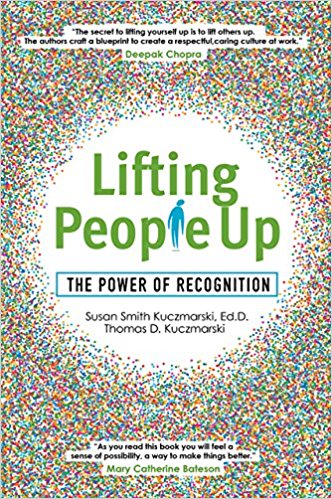The problem with the word “leadership” is that it focuses on the top. It paints a picture of the top brass pulling strings and making things happen in the organization. He or she is constantly in meetings and on the phone, delegating tasks and demanding results.
Having a competent leader is important, but it is only one small piece of the puzzle. The much larger piece, on the other hand, is the individuals that make up the rest of the organization, from mid-level managers all the way down to the lowest level employees. Chris Gladwin, CEO and Co-Founder of Ocient says it best in our recently published book Lifting People Up: The Power of Recognition: “Employees are the culture.”
That’s precisely why we realized the opportunity for a more progressive style of management, one that focuses on these individuals that mean so much to the organization; we call it “peopleship.” A peopleship mentality focuses on creating an organizational culture of innovation that works to motivate employees, give them the tools to succeed, and importantly recognize their successes. This last piece is especially key – all too often we see organizations that forget this crucial need to include praise and recognition into their cultural norms.
We’re not the only ones that think this way either! In Lifting People Up, we spoke with peopleship leaders across Chicago to hear how they view and value praise in their organizations. Kristi Lafleur, President and CEO of Ascend Infrastructure, explains, “People need to be acknowledged for the good work that they do, especially when they take risks and push the envelope.” This is the key to using praise and recognition to build a culture of innovation; when people are regularly getting recognized by management for thinking outside the box, taking risks and succeeding, that approval reverberates across the entire organization and drives everyone to do the same.
The benefits of praise go beyond operational results as well. As we describe in the book, “Praised team members build stronger personal relationships, internally with coworkers and managers, and externally with customers, shareholders and suppliers. All of this, of course, creates a more dynamic, productive organization.”
Praise is an essential ingredient that doesn’t just come from the top, it flows from individual to individual, team to team, top to bottom, and even externally to clients and shareholders. The peopleship model means connecting everyone in the organization to build stronger relationships and recognize efforts and successes. A company’s culture cannot revolve around any single individual, it involves everyone in the organization.
